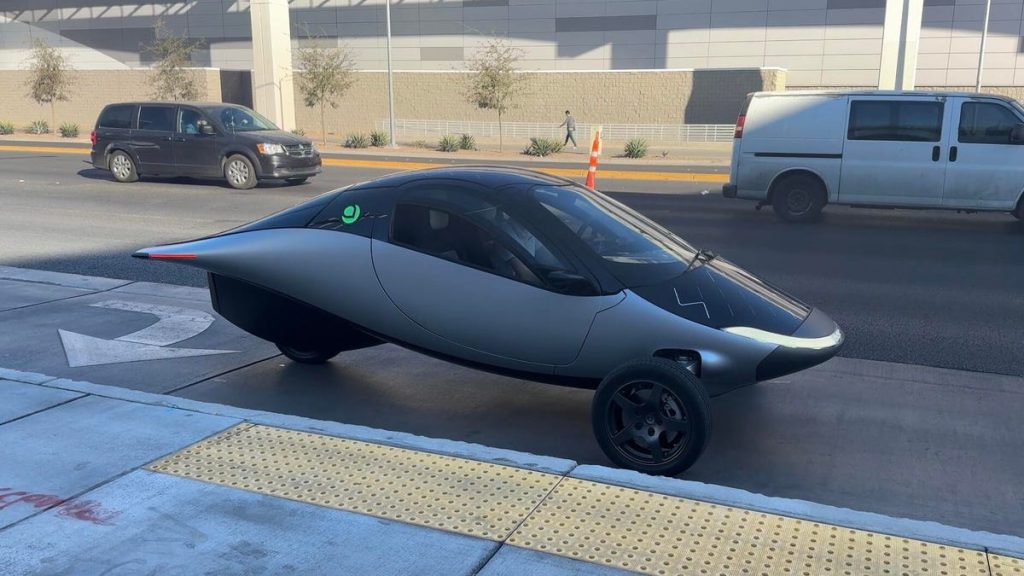CES 2025 showcased a wave of innovations poised to reshape the electric vehicle landscape, addressing persistent challenges and highlighting the industry’s commitment to an electrified future. From revolutionary motor designs to solar-powered vehicles and AI integration, the event offered a glimpse into the evolving potential of EVs. Despite persistent concerns surrounding charging infrastructure, range anxiety, and cost, the showcased technologies underscored the ongoing efforts to overcome these hurdles and accelerate the adoption of electric mobility.
One of the most significant advancements came from Donut Labs, which unveiled a groundbreaking in-wheel motor design. This “donut-shaped” motor is not only hubless, resulting in significant space and weight savings, but also boasts a substantial reduction in manufacturing costs. Weighing in at a mere 88 pounds, approximately one-third the weight of conventional EV motors, the Donut Labs motor holds the promise of significantly extending EV range, a critical factor in alleviating range anxiety. The lower production cost also suggests the potential for more affordable EVs, further broadening their appeal to consumers.
Another notable development was the refined Pebble Flow electric RV cab, building upon its previous iteration with enhanced features and user-friendly functionalities. Equipped with a 45-kilowatt-hour battery pack, the Flow offers versatile charging options, including DC charging stations, RV hookups, home charging, and bidirectional charging with compatible EVs. The newly introduced Magic Pack, controlled via a dedicated app, provides remote positioning capabilities for the unhitched cab, automated hitching and unhitching, and electric assist with regenerative braking while towing. While regenerative braking might impact the range of towing EVs, it offers a unique advantage for traditional vehicle owners seeking to embrace electric RVing.
Addressing the crucial aspect of charging infrastructure, Aptera Motors showcased its solar-powered EV, a compelling solution for minimizing reliance on external charging. Equipped with integrated solar panels on the hood, roof, and rear hatch, the Aptera EV can generate up to 40 miles of range solely from solar energy. While this may not suffice for long journeys, it adequately covers the average daily commute for most Americans, potentially eliminating the need for frequent charging. The lightweight three-wheel design and smaller battery contribute to a lower estimated price point of around $40,000, making it a potentially attractive option for budget-conscious EV buyers.
The Afeela 1 EV, a collaborative effort between Sony and Honda, highlighted the integration of entertainment and technology within the electric vehicle experience. Boasting a 91-kilowatt-hour battery and a 300-mile range, the Afeela 1 goes beyond basic transportation, incorporating features like PlayStation 5 controller compatibility and voice-activated commands through its AI assistant, Afeela Personality Assistant. The vehicle’s pricing was also confirmed, with the Signature spec, offering a comprehensive suite of features and customization options, priced at $102,900 for its 2026 launch. A more affordable Origin model, albeit with some feature limitations, will follow in 2027 at $89,900.
These innovations showcased at CES 2025 collectively paint a picture of a rapidly evolving EV landscape, one where range anxiety is being tackled head-on, charging infrastructure limitations are being circumvented with solar technology, and the in-car experience is becoming increasingly integrated with entertainment and AI. The showcased technologies demonstrate a clear trajectory towards greater accessibility and practicality, signaling a promising future for electric mobility. While challenges remain, the continuous advancements in EV technology, as witnessed at CES 2025, highlight the industry’s unwavering commitment to realizing a sustainable and electrified transportation future.

